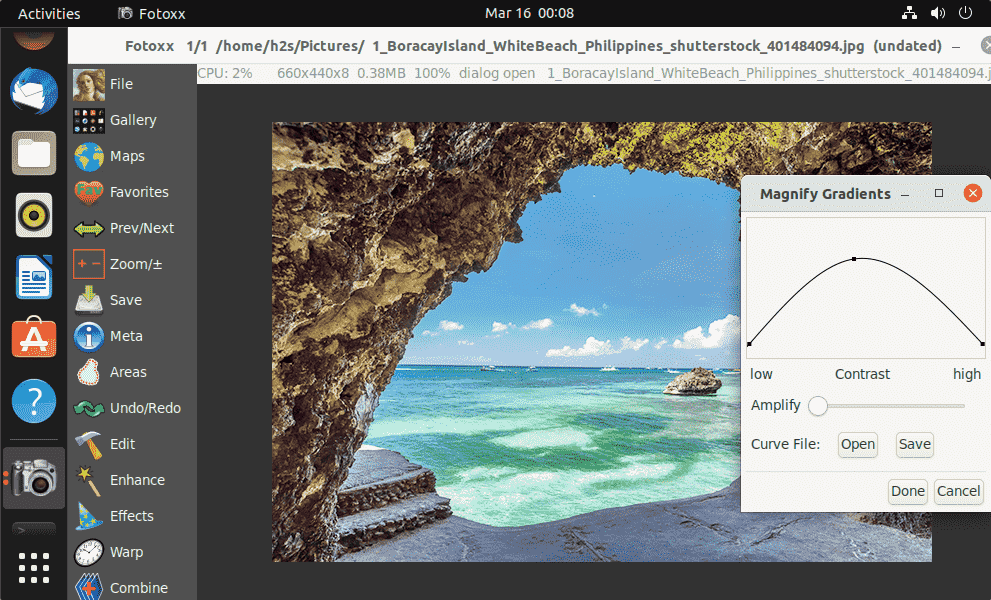ITProPortal is supported by its audience. When you purchase through links on our site, we may earn an affiliate commission. Learn more
By Daniel Blechynden published 4 January 22
Find the best WordPress website builders for your site
• Top 3 WordPress website builders
• WordPress site builder reviews
• Builders vs WordPress explained
• 10 tips for building your first site
The best website builders, like Wix or Weebly, enable users to create new websites in next to no time, regardless of experience levels or knowledge, and utilize their own CMSs for all-in-one site solutions. WordPress website builders, such as Elementor or Divi, do the same, but are specifically designed for use with the WordPress.org CMS.
WordPress website builders and plugins achieve the same outcome as website builders, with the difference being that many can be installed straight from WordPress’s plugin library, or via the best web hosting services. Many are available for free, via paid license, on monthly or annual subscriptions, and across all three options in some cases.
To be able to use these builders and plugins properly necessitates signing up with one of the best WordPress hosting plans, available from and offered by leading web hosts. Below, we’ve analyzed, ranked, and reviewed a series of leading WordPress website builders, with the options below the best on the market.
While some of the builders and plugins featured below are more advanced than others, all will enable you to craft attractive, highly-functional WordPress sites, without needing to have coding or similar developer skills at a specialized level.
See our top tips for building your first website, to ensure you’ve got the best site possible
Bluehost: the leading WordPress website builder
Bluehost's WordPress website builder is a fantastic choice for users looking to create a WordPress site. At the moment, you can get access to the builder for just $2.95 a month, as well as a free domain for the first year, 24/7 support, unlimited sites, and use of the editor and its online store options.
Elementor: versatile builder with range of plans
The leading WordPress website builder plugin, Elementor's versatile page-building solution caters for beginners and experts. From a detailed free version to a range of competitively-priced paid plans, top tools include marketing popup creation, desktop and mobile design, and WooCommerce integration.
Divi: advanced WordPress site creation
Another leading plugin, Divi offers access to advanced WordPress site features via subscription, including top themes and additional plugins for email marketing and social networking. Its attractive drag-and-drop interface enables site customization, while advanced editing via coding is available too.
Our top choice of the best WordPress website builders is Bluehost’s WordPress website builder. Despite being a relatively recent entrant to the world of website building, the service provides leading, intuitive and customizable, cheap WordPress site building, as well as ecommerce options across more expensive packages.
Elementor is one of the most powerful plugins, and provides an intuitive drag-and-drop editor instead of the less-intuitive native WordPress editor. You can put a new WordPress site together without any coding and utilize multiple third-party integrations.
We also highly rate Divi, Oxygen, Visual Composer, SeedProd, and Beaver Builder among WordPress website builders available. All of these plugins provide a mixture of tools, features, and advantages that mean they’re worth considering for your WordPress site.

Bluehost’s WordPress website builder, despite being brand new to the world of website building after its launch in August 2021, is our pick of the best WordPress website builders. It’s quickly gained popularity as a beginner-friendly option, and is designed for fast, streamlined site creation.
The builder is aimed at users with limited design experience, and after an excellent introductory tour to help familiarize you with its tidy, section-based editor, Bluehost’s what-you-see-is-what-you-get (WYSIWYG) interface is streamlined and simple to use, backed up with 24/7 live support and a leading knowledge base.
If you’re looking for more advanced functionality as an experienced user meanwhile, the builder also supports custom HTML, CSS, and Javascript code, all of which can be added via dropping simple code elements into the editor. Other tools available include SEO, meta text popups, and ecommerce features like online store design.
Limitations include the builder’s inability to switch templates, as well as concerning performance. However, on the latter, your experience will improve should you opt for a higher-end shared hosting plan from Bluehost: the builder is available with all of the company’s web hosting packages.
There are three specific website builder plans – Basic, Pro, and Online Store – respectively costing $2.65, $9.95, and $19.95 a month. All three offer unlimited sites, include web hosting, and offer access to over 300 templates, alongside free SSL certificates, a free domain for the first year, and free email marketing. Pro and Online Store plans offer domain privacy, 30 extra premium templates, and advanced ecommerce functionality, such as WooCommerce integrations.
Shared hosting plans range from $2.95 to $13.95 a month for an initial 36-month subscription, while managed WordPress hosting starts at $9.95 a month.
While a newcomer to the WordPress website building world, Bluehost is well placed to hold its industry-leading position thanks to simple, cohesive site creation. While an excellent option for beginners, this builder is also ideal for those seeking to take full advantage of what WordPress can offer.
Read our comprehensive Bluehost WordPress website builder review.
Elementor is one of the leading WordPress website builders, and even a cursory glance shows why. It offers versatile page-building solutions for everyone, from absolute beginners to the most advanced developers. There’s a neat free version that you can use to create simple sites and test the overall functionality of the platform, along with a number of premium license options.
The cheapest Essential plan comes in at $49 a year. It supports one website, and provides full access to the drag-and-drop editor and all premium widgets and site elements. There are more than 300 templates available to help you get your site started, and all paid plans come with premium support.
Upgrading to an Advanced plan ($99 a year) adds support for up to three websites, while the Expert subscription ($199 a year) enables you to create up to 25 sites. Custom licenses are also available for design studios and agencies managing large numbers of WordPress websites.
Along with the drag-and-drop builder, Elementor offers a selection of other tools. For example, there’s a builder you can use to create advanced marketing popups. You can also tweak the appearance of your site for desktop devices and for mobile friendly website design, ensuring it appears exactly the way you want on all devices.
There’s a WooCommerce builder that you can use with the WooCommerce ecommerce plugin to create an online store. Add custom CSS or HTML code if necessary, and take advantage of integrated landing page and form creation tools to improve your marketing efforts.
On the downside, Elementor’s free version is basic. You will be able to create an attractive website with it, but don’t expect access to advanced tools. The editing interface is also a little confusing, and you may find that it takes some time to get used to.
Read our comprehensive Elementor review.
Just about any list of the best WordPress website builders will feature Divi as one of the leading plugins. It was released in 2015, and it can be used with any WordPress theme to create truly custom designs packed full of advanced features.
Now, one thing worth noting about Divi is that it’s not available as a stand-alone purchase. To gain access to it, you will need an Elegant Themes subscription. This costs either $89 a year for a recurring subscription, or $249 for a lifetime license.
There’s no free trial or free version available, which is a shame. On the plus side, though, a suite of advanced features is included with all plans, such as the popular Extra theme, the Bloom email opt-in plugin, and the Monarch social sharing plugin.
When it comes to the Divi builder itself, it boasts an attractive drag-and-drop editing interface. It uses a what you see is what you get (WYSIWYG) editing style, enabling you to place site elements exactly where you want them.
Advanced styling can be added with custom CSS code, and personalized templates can be saved and used to create new pages or websites. There are also several global elements and design settings that you can use to ensure your site’s overall appearance remains consistent across the board.
Unfortunately, Divi is on the expensive side when compared to many of the alternatives. There are a lot of advanced tools that may be a little overwhelming for some users, but there’s little else not to like.
Like most of the options on this list, Oxygen provides versatile drag-and-drop page-building solutions for everyone from complete beginners to advanced users. However, what makes it stand out is its selection of integrated developer tools.
Most builders enable you to add custom CSS and HTML code snippets, at least on a basic level. Oxygen goes one step further, enabling custom JavaScript and PHP code. With this, you can add advanced custom elements, effectively enabling you to create anything you can come up with. You can also access advanced CSS styling tools, and have the ability to build your site with fundamental HTML elements.
There are four different subscriptions available. The cheapest Basic license ($129) provides lifetime access and support for unlimited websites, while advanced licenses add WooCommerce integrations, a Gutenberg block builder, and a selection of more specialized tools. All licenses come with a 60-day money-back guarantee, access to lifetime support and software updates, and unlimited websites.
The main negative of Oxygen is that it’s a little complicated to install and get started with. Beginners may have a hard time familiarizing themselves with the user interface, but this is largely due to the number of features on offer. Additionally, the lack of a free plan or free trial makes it a little difficult to test the builder.
Those who are looking for a simple, beginner-friendly WordPress website builder will love Visual Composer. It’s designed as a full-site builder, enabling you to customize everything from individual pages and sections to global elements such as headers and footers.
In addition, Visual Composer comes with a great free-forever version that you can use to test its functionality. This is limited to 30 elements and ten templates, and it lacks some global design tools, but it’s still one of the best free options we’ve used.
Upgrading to a premium plan will unlock hundreds of premium elements, add-ons, and templates that you can use to add functionality to your site. Prices start from $49 a year for a single-website license, increasing to $99 a year for three sites, and $349 a year for unlimited site connections.
There are numerous noteworthy features included with every premium subscription. The drag-and-drop editor is a little basic, but it’s beginner-friendly and easy to use. All users will have access to a Visual Composer Hub that enables you to download specialized elements and other content.
Add even more advanced functionality to your site with the selection of specialized content options. These include various WooCommerce blocks, which are excellent for those creating an online store. The main downsides are the somewhat simplistic editor—which we’ve already touched on—and the absence of some global design elements with the free version. 
SeedProd is a little different from the other options on this list, as it’s designed specifically for landing page creation rather than entire website builds. However, it remains one of the most powerful WordPress page builder plugins we’ve seen, and it’s well-deserving of its place on this list.
It’s also one of the cheaper options available, with prices starting at just $39.50 a year for a basic single-site subscription. All plans come with access to over 150 templates, a number of email marketing integrations, subscriber management, and full access to the drag-and-drop page builder.
More advanced plans add access to a stock photo library containing over two million images, along with WooCommerce support, domain mapping, and dynamic text tools. The most advanced Elite Bundle plan also adds priority support and access to the RafflePress plugin.
There’s no free-forever version, but all plans come with a 14-day money-back guarantee that enables you to test the platform without risk. The main negative here is that you can’t use SeedProd for entire site creation, but it remains an attractive option for those looking for a powerful landing page builder. 
The Beaver Builder WordPress website plugin has long been one of the leading options on the market. It’s known for the clean code it generates, which makes fine-tuning your design much easier than with some other page builders.
Another thing that Beaver Builder is known for is its excellent selection of website, page, and other templates. These provide an attractive starting point for your next project, and they stand out from those offered by many competitors.
There’s a free version available via the WordPress plugin library, but this is quite limited. Premium licenses start at $99 a year, and enable unlimited site connections. All plans come with premium support for the first year, and access to all premium design elements and templates. More advanced plans add the Beaver Builder theme, multi-site network settings, and full white labeling capabilities.
On the downside, there’s a serious lack of advanced tools and integrations. For example, inline text editing isn’t supported, despite being standard among most WordPress builders these days. Overall, though, there’s a reason why Beaver Builder is used by so many people worldwide, and it’s certainly a viable option for simple site creation.
As mentioned earlier, both WordPress website builders and conventional website builders help users to design, make, and publish websites.
However, there are as many differences as similarities. For example, conventional builders offer all-in-one site creation, including management of technical elements, web hosting, security updates and tools, and a web domain. The average website creator will only need to worry about designing and maintaining their site.
As WordPress can’t be used without a third-party web host, you'll need to arrange web hosting for your site. WordPress, as an open-source CMS, is designed to help create and manage your site, and builders and plugins help you to create a site with more technical freedom and control: though beginners can also utilize these, as they're very user-friendly, with additional advanced tools.
For beginners in general, received wisdom was that you should use a website builder if thinking about creating your own site. This was because most require no coding knowledge, and offer fast site creation, making them a great choice if you want to spend less time and money.
However, plugins and builders for WordPress are now narrowing the gap, so it really depends on what level of customization and potential flexibility you want for your website.
See our top tips for building your first website, to ensure you’ve got the best site possible
You’ll want to find out more about WordPress’s site building capabilities if you don’t know too much: ensure you read our detailed WordPress review and our comparison features pitting WordPress vs Wix vs Squarespace.
If you’ve decided to go with WordPress, our step-by-step guide on how to build a website with WordPress spells out the process.
Daniel is a freelance copywriter with over six years experience writing for publications such as TechRadar, Tom’s Guide, and Hosting Review. He specializes in tech and finance, with a particular focus on website building, web hosting, and related fields.
Sign up below to get the latest from ITProPortal, plus exclusive special offers, direct to your inbox!
Thank you for signing up to IT Pro Portal. You will receive a verification email shortly.
There was a problem. Please refresh the page and try again.
ITProPortal is part of Future plc, an international media group and leading digital publisher. Visit our corporate site.
© Future Publishing Limited Quay House, The Ambury, Bath BA1 1UA. All rights reserved. England and Wales company registration number 2008885.







